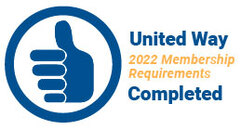|
In previous articles, we have discussed many aspects of substance use, treatment and recovery. In this article, I will let Chris tell a story of recovery.
I started using when I was a teenager. I went through multiple treatment programs and relapses. I almost died several times. Many of my friends did. I don’t want to glamorize what I did but only say I was stupid and reckless. Most of the time I was in treatment, I was just going through the motions, doing what I was expected to do, so I could get out and get high. After hitting the bottom several times and coming to my senses, I came to the realization that the most important thing in my life had to be staying sober. AA says you are as sick as your secrets. I had to figure out what was driving me to use drugs, what underlying pain was I running from? It took a long time. It is a daily struggle. There are still triggers out there that cause cravings, usually stupid stuff like the bleach in the laundry aisle of the grocery store, that I used to clean my needles. Or driving by the places where I used to use, a smell, an object that reminded me of when I was using. I know now that I can only stay clean when I am in community. My sponsors and friends in recovery hold me accountable and I do the same for them. We offer each other encouragement and call BS when we are lying to ourselves and others. The people who helped me didn’t judge me, criticize me or make me feel worse than I already did. They didn’t give up even as I continued in denial and self-destruction. They saw me as a person who was lost and needed help: a person worth saving. Their eyes offered acceptance and kindness, holding out hope until I was finally able to accept it for myself. Those who didn’t help demanded to know how I could do this to myself and my family. Why didn’t I pull myself up by my bootstraps, show some willpower and stop being such a loser? I knew what I was. I hated myself and what I was doing. I didn’t need anybody else telling me that. I was already worthless and ashamed. The most important thing to tell people who are in the depths and darkness of addiction is that I used to be where you are. I recovered and you can too. There is hope. Our details may be different, but our stories are the same. We couldn’t face the pain in our lives and drugs/alcohol made us feel good and forget our problems temporarily. But the drugs only added to the pain and hopelessness of what we were doing to ourselves. It comes down to two choices: You can recover or die. You don’t have to die, you can recover. For the families who are going through this with them: You can’t save someone who doesn’t want to be saved. But you can keep the door cracked open to offer hope when they are ready. And take care of yourself while you wait. It still pains me to think of what I put my family through. On many levels, I did not know what I was doing to them until it was too late. I was so self-absorbed and unaware of anything but me. Saying I’m sorry a million times can’t fix it. I cannot express how thankful I am for the relationships that are healing and being restored. The details of Chris’ story have been changed (including the name) to protect Chris’ privacy. This path to recovery is unique as every person’s recovery is a little different. What worked for Chris may not work for others. But this story offers hope. The journey may be long, but don’t give up. Help is out there. Recovery is possible.
0 Comments
Your comment will be posted after it is approved.
Leave a Reply. |
AuthorLynn Saylor is the AmeriCorps member working with the United Against Opioid Abuse Initiative alongside the White County United Way. She is a major facilitator of the United Council on Opioids serving White County and a regular contributor to local media. Archives
October 2020
Categories
All
|

 RSS Feed
RSS Feed
